CAMP INDIA, Iraq - Gerian Mohamed is proud of many things in his life; his marriage and the birth of his children. But today, he said, is one of the proudest moments of his life.
Today he became a police officer.
A few short months ago he was a farmer, growing vegetables sold in Baghdad markets. The 30-year-old proudly declared he is ready to serve his country.
"The training was very difficult, harder than I imagined," Mohamed said through a translator. But he said he feels ready for what lies ahead.
Mohamed was one of 828 volunteers to graduate the Iraqi Police training program here today. A separate class graduated from the Baghdad Police College Sept. 20. The goal is to expand the Iraqi Police force by 12,000 officers over the next six months throughout Iraq.
What lies ahead for Mohamed and the nearly 1,500 other volunteers from the Abu Ghraib area of western Baghdad, who will soon undergo the same training, is the opportunity to do their part in building a better and safe Iraq for themselves by starting in their own neighborhoods.
Mohamed said a few months ago he didn't have a lot of hope for the future or his children's future. Extremist and terrorists had infiltrated the area where he lived and made life very dangerous. In what has been widely publicized, sheiks of Abu Ghraib formed an alliance with Coalition Forces and the government of Iraq, turning their backs on these extremist groups like al-Qaeda.
Sheik Talib Motlak Al Halous is one of them. For him, this graduation was a very important day.
"We must rid our country of the terrorist, and al Qaeda," he said through a translator. "Then we, all Iraqis, must work to put aside sectarian differences.
"This morning is a good morning, because today, we were able to put aside our sectarian differences and come together to start ridding our country of terrorists. Today is a start. Today is a very proud day," Sheik Al Halous said.
For Lt. Omar Thamer, an Iraqi Police instructor, this day held special meaning as well. Immediately following the graduation, dozens of his former students surrounded him, taking turns hugging and kissing their teacher on his checks.
"We have to all work together to help make Iraq one," said Thamer. "That's our jobs as police officers."
Mohamed, his pale green eyes looking up at his instructor, nods his head in agreement.
"He taught us a lot," Mohamed said. "I know I learned a lot, and I feel ready to start doing my part for my home and my country. We have to all learn to work together."
Thamer explained he treated all the police candidates as human beings, showing them respect every step of the way.
"When you do that, you get respect back in return," he said.
Before the ceremony, one of the recruits came to the podium and read from the Quran, his voice rhythmically singing the words of the holy book, filling the air and floating on the breeze. He recited a Surah, or verse, which commands all true believers to not fight one another; that all Muslims should work together and always look for peace.
"You have undergone very good training," Iraqi Lt. Gen. Abud Qanbar, commanding general of the Baghdad Operations Command told to the graduates. "You know how to do your jobs now, and your first priority is to defeat the terrorist and help the Iraqi people."
Abud went on to tell the graduates this was a very important first step for all of Iraq.
"You must enforce the law. You must work together to keep away sectarian violence. We must get all Iraqis to come together, as one people and one nation. We must stop the bloodshed," Abud said. "In order to do that, you have to treat all Iraqi people with respect. You have to follow the laws you uphold and represent. Remember your training, and always strive to improve yourself. Remember, it is Iraq first and last."
For Lt Col. Kurt Pinkerton, the difference between a few months ago and now is night and day. Pinkerton, from San Jose, Calif., is the commander of 2nd Battalion, 5th Cavalry Regiment, 1st Brigade Combat Team, 1st Cavalry Division. He said what made the difference was the young men filling the parade field.
"Since we got here, we have been working with the tribes," Pinkerton said. "Frankly, we have been reaching out to the people ...trying to find out what they were resisting; what their goals and objective were.
"What we found was it was almost cultural. They didn't have a purpose to resist. They did it, at first, because it was the thing to do as a culture. And then after a while it just sort of sustained the fight. They didn't like the government, they didn't like the security forces and they were jobless," Pinkerton explained.
"So they voiced their anger through resisting. Once we started finding them jobs, working with them, letting them secure their own areas, integrating them with the Iraqi Army and Iraqi Police; they turned completely and have helped us for several months to fight al Qaeda," Pinkerton said. "These guys all started out as volunteers, none of which got paid."
Now that they have completed the 30 days of training, they are police officers and will return to their own neighborhoods where they are expected to serve and protect.
"There are two big advantages to doing it this way," said Pinkerton. "One, they know the people and the people know them, so there is already mutual respect and cooperation. The second key thing is its going to build a stronger local economy, with 1,500 jobs for the local population. That's a significant boost to the local economy."
"My confidence is high," said Mohamed surrounded by smiling classmates. "I see a good future for Iraq. I see a bright future for my children.
"Perhaps in a few years," he said, "I can put away my uniform and my gun, and go back to farming."
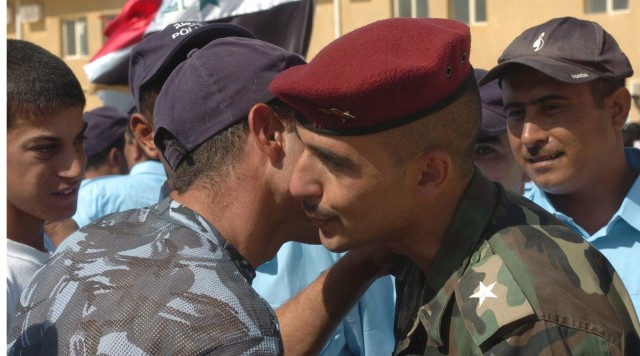
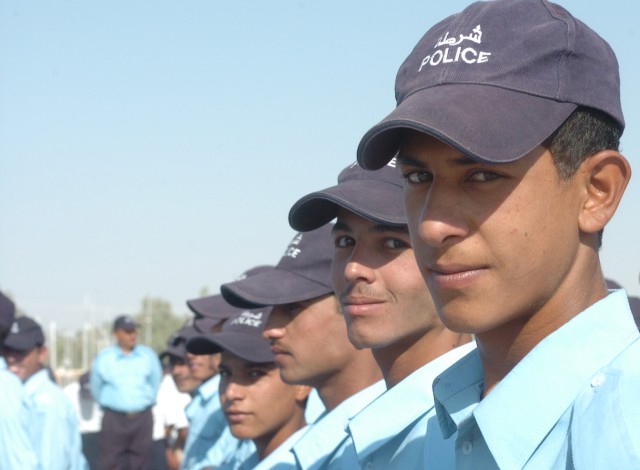
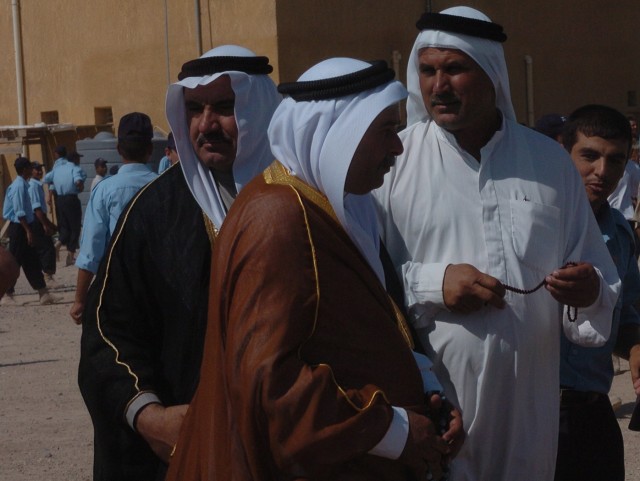
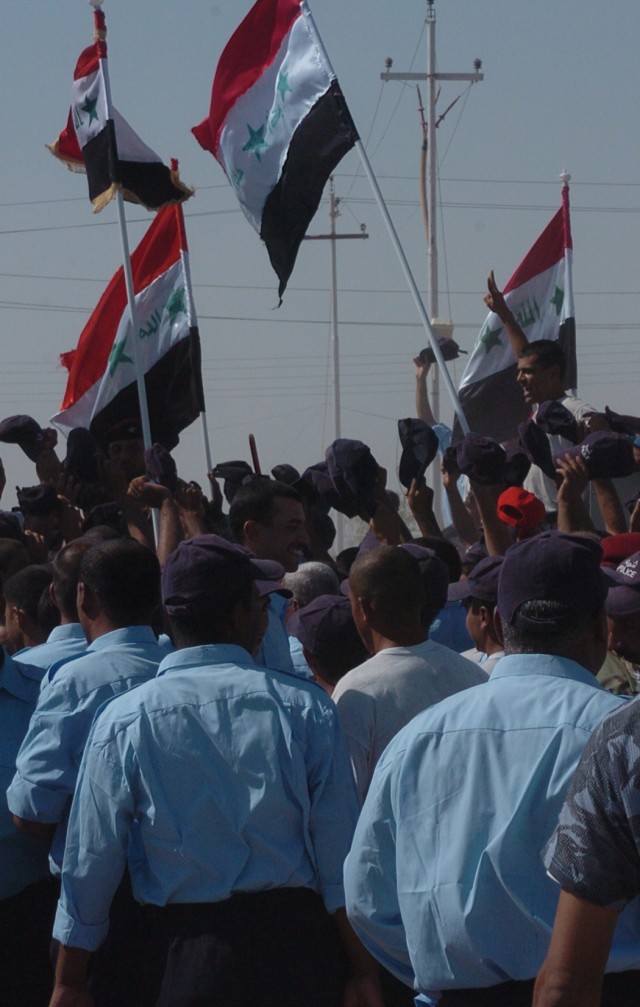
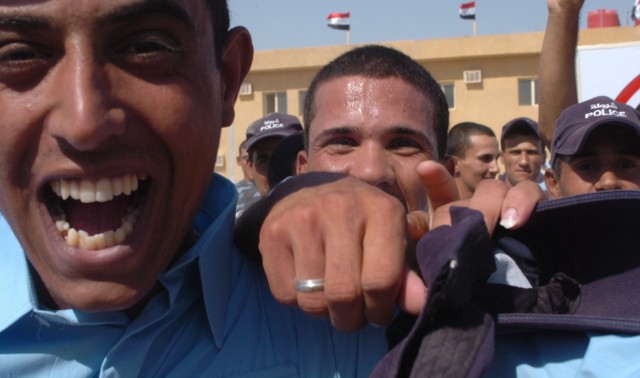
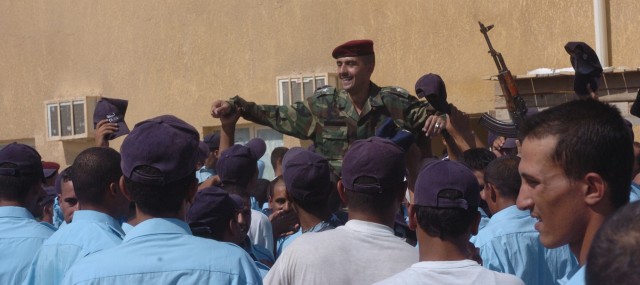
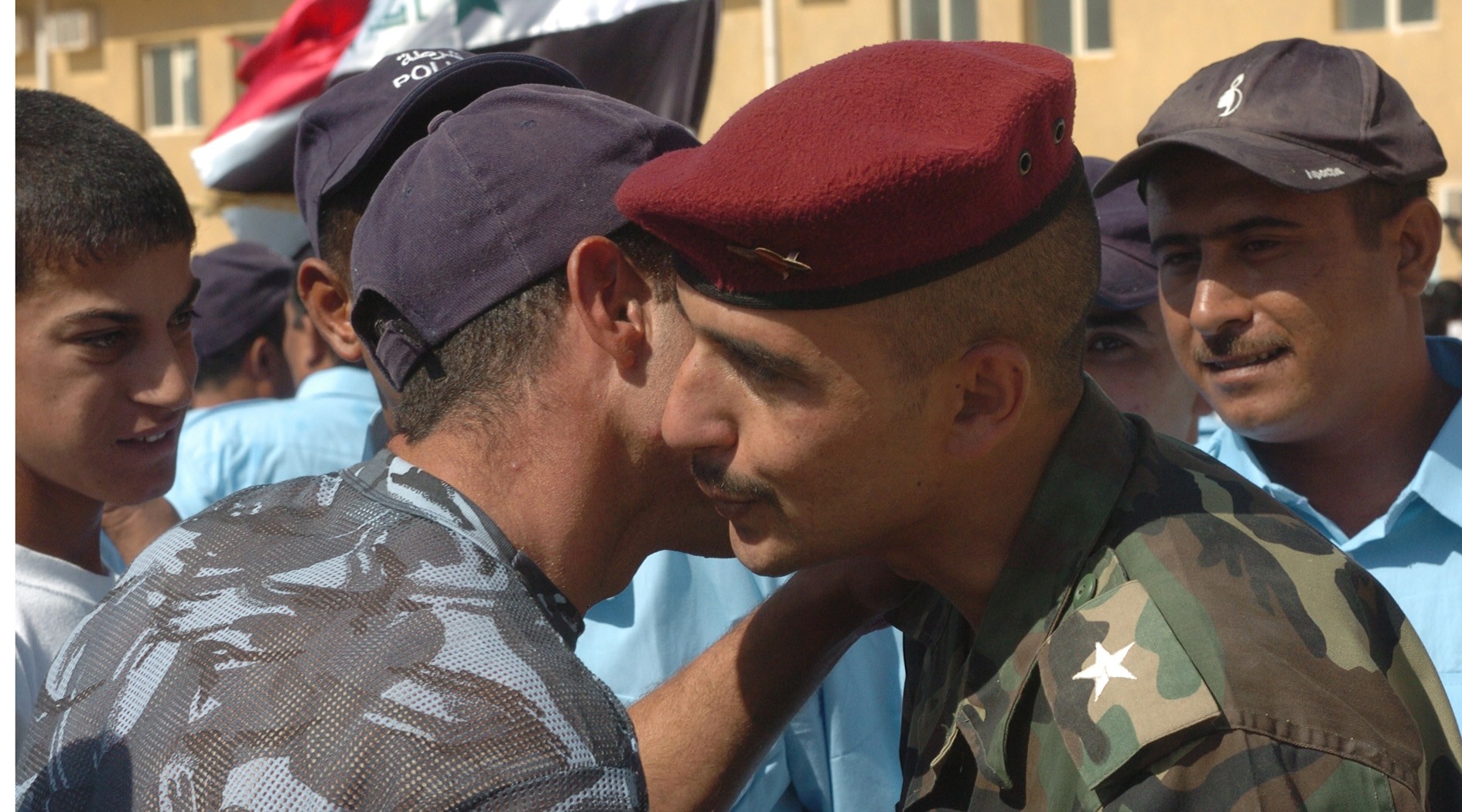
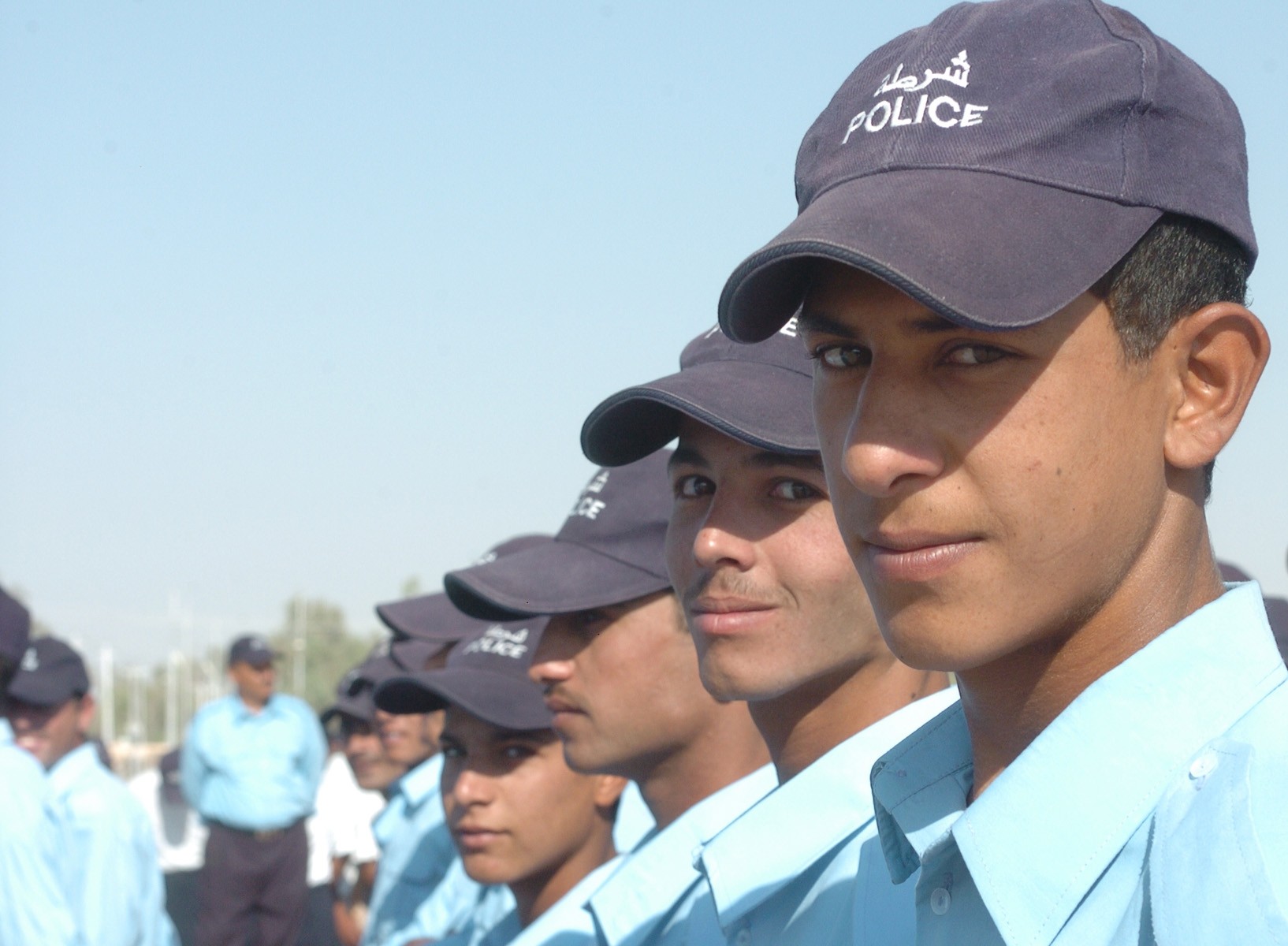
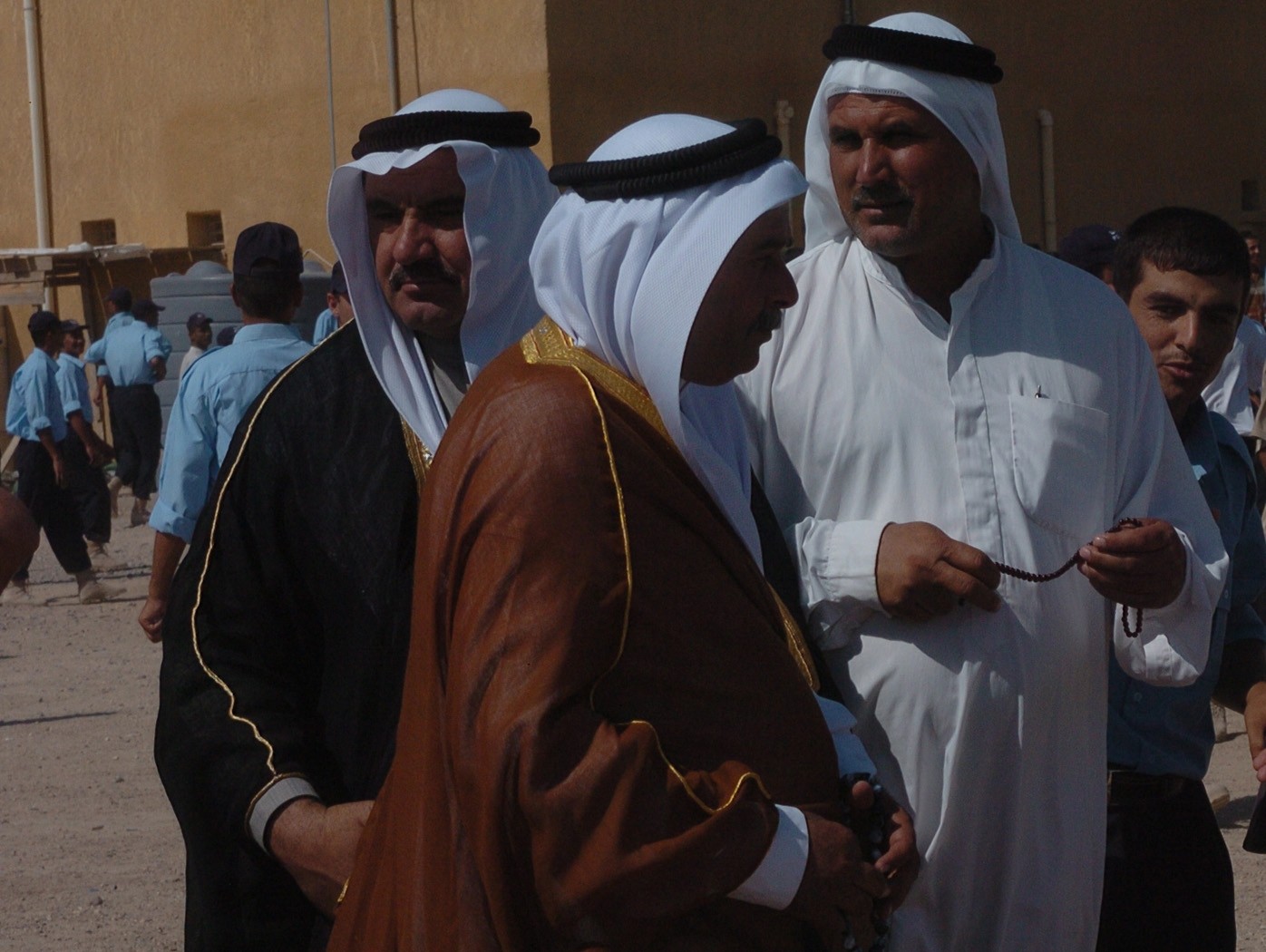
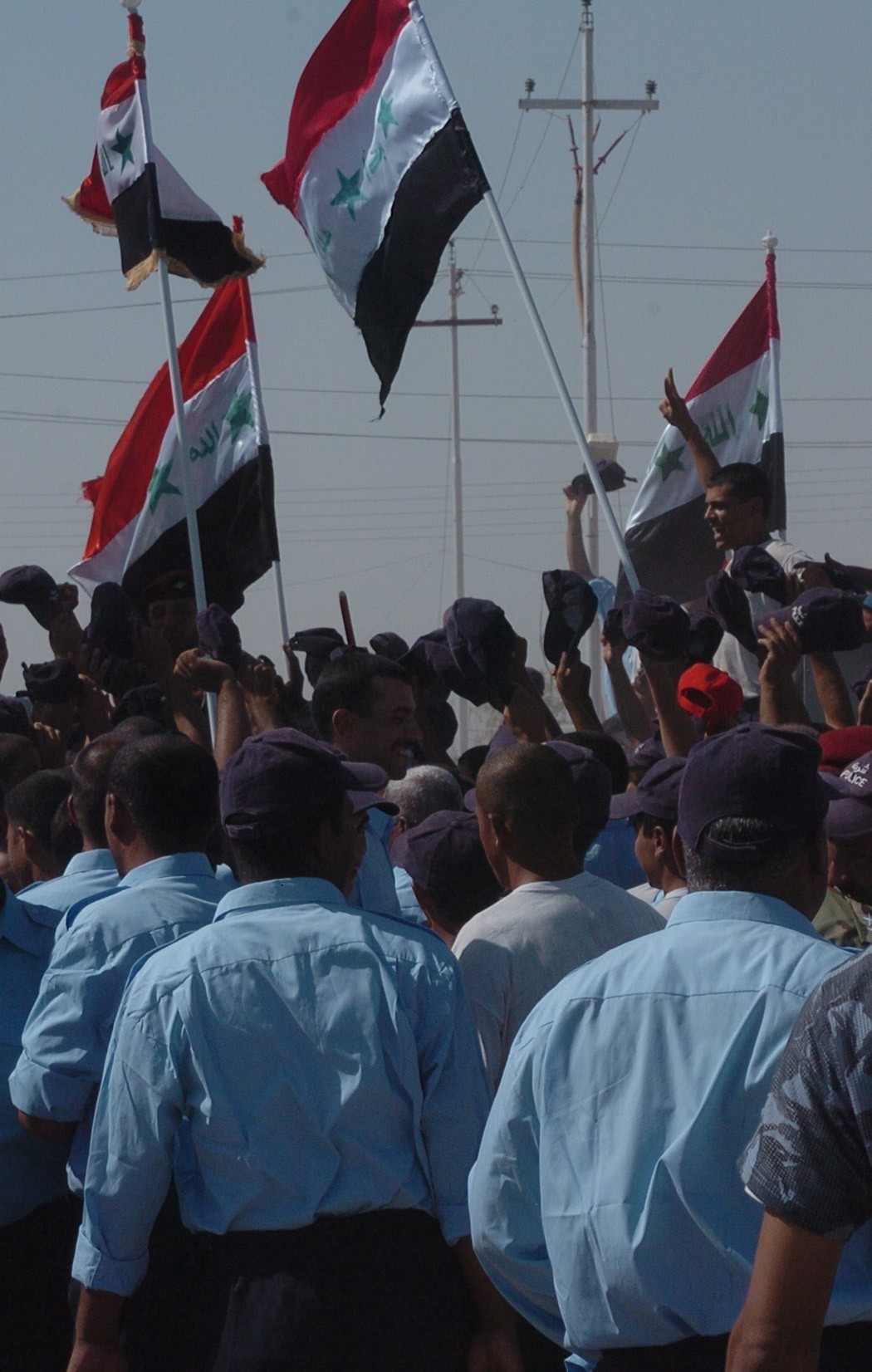
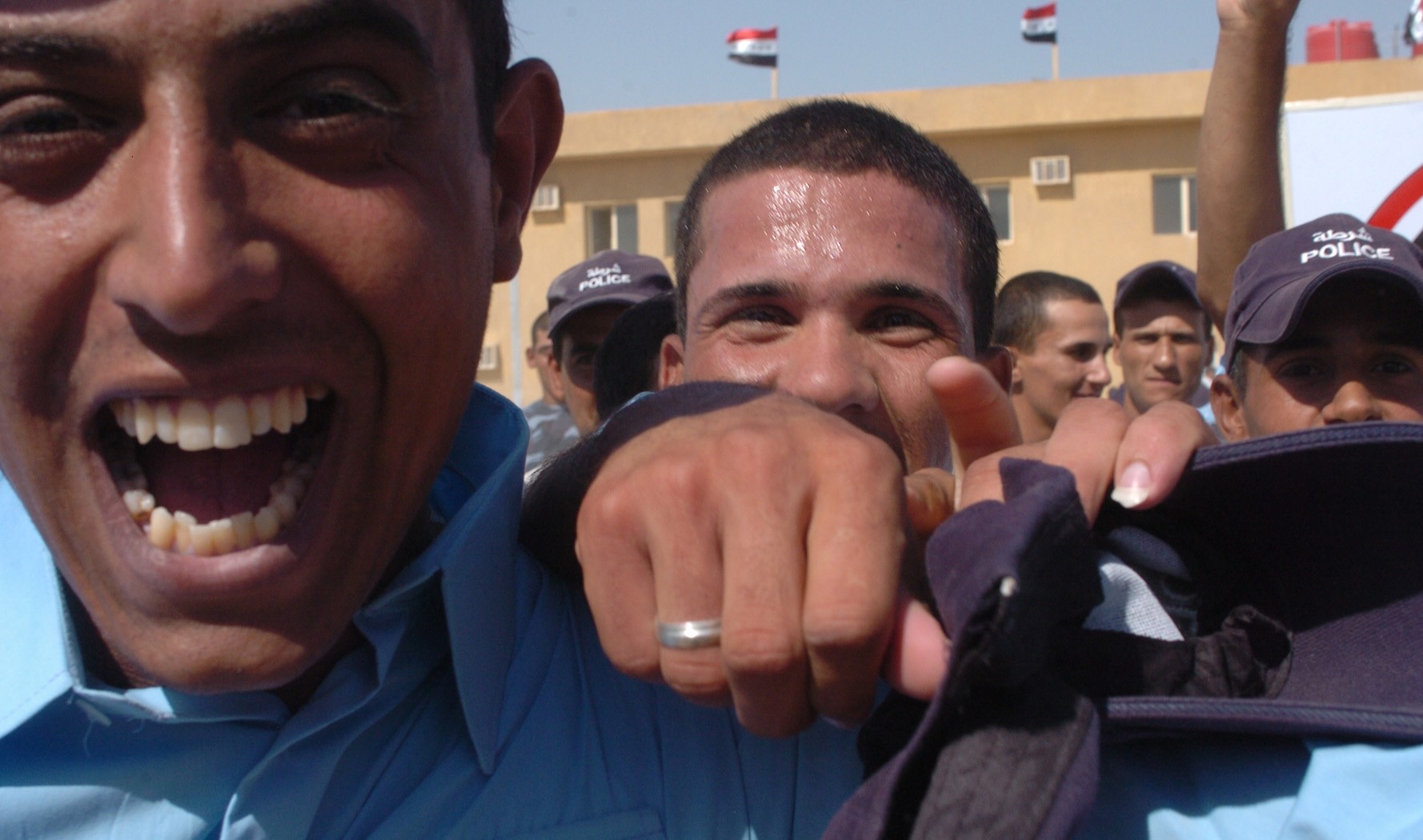
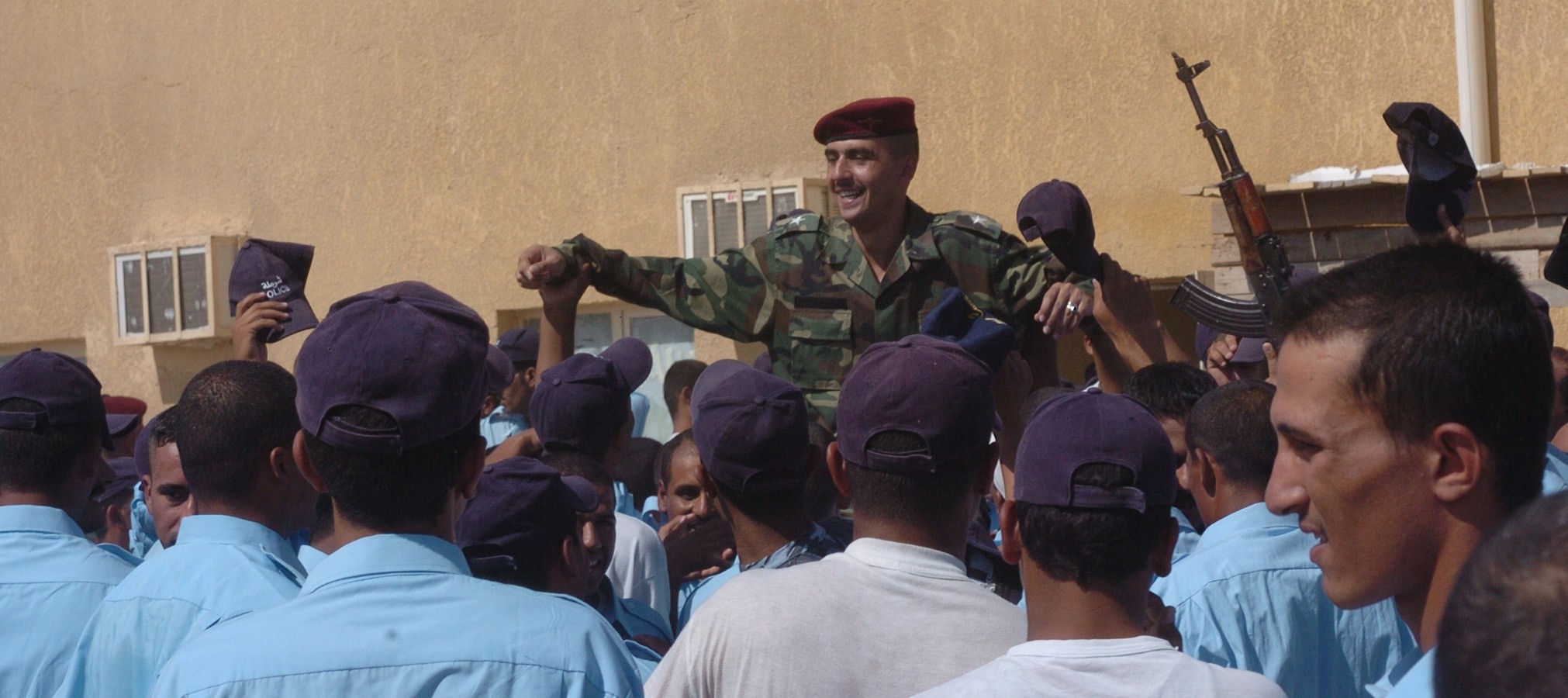
Social Sharing